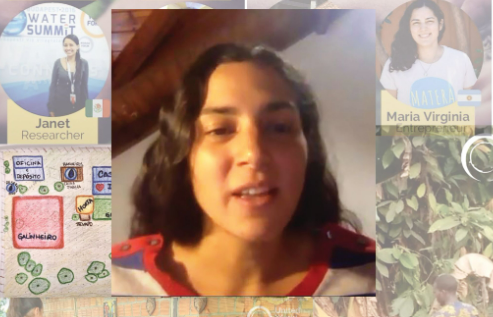
© Photo COURTESY OF LAURA SALERNO
“My family works in the agricultural production sector,” explains Maria Virginia Solis Wahnish, a 29-year-old Argentinian businesswoman. “From an early age I’ve always felt this call to work with producers to bring a change in society, a change that begins with the earth.”
Virginia has a company that trades yerba maté, the traditional Argentine hot drink, working directly with small producers. She has always wanted to combat problems in agricultural production, environmental protection and the redistribution of resources.
“I dreamed of a system that promoted collaboration on a global level, but didn’t lose sight of the local dimension; indeed, a system that put the human person at the center.”
She found an answer about a year ago, during the Economy of Francesco event, where Pope Francis invited young economists, entrepreneurs and changemakers interested in practicing a different economy. In the words of the pope, the goal is an economy “that brings life and does not kill, includes and does not exclude, humanizes and does not dehumanize, takes care of creation and does not destroy it.”
During the workshops, Virginia met other young producers and entrepreneurs who shared her ideas and her questions. Little by little, they started looking for answers together.
Virginia and 10 other young people started their company “The Farm of Francesco” to help fight the desertification of the soil. “It is estimated that humankind has about 40 more years before the soil used today for cultivation stops being fertile.”
She explains that there are methods that allow the land to be cultivated in a sustainable way, without making it sterile, but most farmers do not know those methods.
“We decided to start two pilot farms in Nigeria and Brazil. We apply regenerative agriculture and teach this method to other small producers.”
The goals of The Farm of Francesco are ambitious: to build 250 demo farms by 2030, each of which should generate 120,000 hectares of restored land, and train 10,000 young people. By donating $10, everyone can adopt and help in the regeneration of 10 square feet of land, which will be used to grow food and regenerate the soil.
Virginia is hopeful as they move forward. “My dream is that everything we do is pushing us to love more. To love the earth more, love others more, love ourselves more.”












